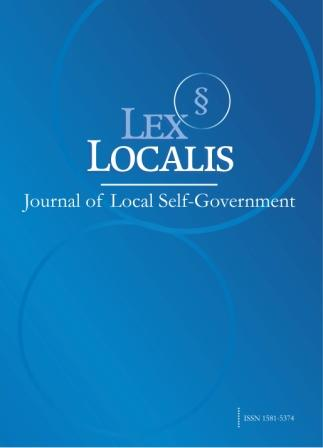Correlation between Korean language learners' interactive online platform usage habits and learning outcomes
DOI:
https://doi.org/10.52152/800038Keywords:
multiple linear regression; interactive online platform; correlation; learning behavior; learning effectAbstract
This paper analyzes the main functions of the interactive web platform and obtains Korean learners' online learning data from the platform's database. Preprocessing the learner usage behavior data yields the main learner characteristics, and multiple learning behaviors are ranked in descending order of mean value. Integrate the overall learning effects of Korean language learners to identify core learner characteristics. Analyze the correlation within different learning behaviors (course access behavior, resource learning behavior, participation in homework, participation in discussion and interaction), and the correlation between different learning behaviors and course performance. Split learners' usage habits into different learning behavior sequences, and separately explore the multiple linear regression results between different learning behavior sequences and learning achievement. The online learning behavior variables of Korean online course learning are significantly correlated with learners' final academic performance. The correlation coefficients of video viewing completion, homework completion time and the overall course grade are 0.824 and 0.896, respectively, which are all highly positively correlated.
References
Wadhwa, N., & Khatak, S. (2020). Online versus offline mode of education–is India ready to meet the challenges of online education in lockdown. Journal of the Social Sciences, 48(3), 404-413.
Roy, S. D. (2024). Surviving Online, Living Offline: Critical Perspectives on Online Education and Its Impact on Students and Teachers. In Digitalization of Higher Education (pp. 225-249). Apple Academic Press.
Leo, S., Alsharari, N. M., Abbas, J., & Alshurideh, M. T. (2021). From offline to online learning: A qualitative study of challenges and opportunities as a response to the COVID-19 pandemic in the UAE higher education context. The effect of coronavirus disease (COVID-19) on business intelligence, 203-217.
Choi, G. W., Lim, J., Kim, S. H., Moon, J., & Jung, Y. J. (2024). A Case Study of South Korean Elementary School Teachers' Emergency Remote Teaching. Knowledge Management & E-Learning, 16(2), 259-285.
Ko, E. G., Joo, S. H., Lim, K. Y., Resta, P. E., & Jang, E. K. (2022). How Korean k-12 educators adapted to online teaching and promoted digital equity during COVID-19: A mixed-method study on practices and perceptions. Journal of Education and Training Studies, 10(1), 59-80.
Lim, S. H. (2017). Teachers Empowering Teachers in an Online Community of Practice: A Case Study of Korean EFL Teachers' Learning to Teach Flipped Classroom on NAVER BAND. Multimedia-Assisted Language Learning, 20(1).
Kwak, S. (2017). How Korean language arts teachers adopt and adapt Open Educational Resources: A study of teachers’ and students’ perspectives. International Review of Research in Open and Distributed Learning, 18(4), 193-211.
Ro, J. (2017). A journey from the classroom to the world of educational reform: A study of three Korean teachers’ practitioner inquiry. Asia Pacific Journal of Education, 37(1), 28-41.
Park, J. S. Y. (2022). Foreign language education at the nexus of neoliberalism and coloniality: subjectivity in South Korean discourses of education reform. Critical Inquiry in Language Studies, 19(4), 336-354.
Park, H. R. (2018). Influences of reading online texts in Korean English language learners' cultural identities. The Journal of Educational Research, 111(4), 385-397.
Hwang, S. E. (2020). A study on the academic vocabulary education for content-based Korean language education: A basic study for online dictionary development. Journal of The Korea Society of Computer and Information, 25(2), 67-74.
Jeong, K. O. (2023). Integrating technology into language teaching practice in the post-COVID-19 pandemic digital age: From a Korean English as a foreign language context. RELC Journal, 54(2), 394-409.
Fraschini, N., & Tao, Y. (2024). Emotions in online language learning: exploratory findings from an ab initio Korean course. Journal of multilingual and multicultural development, 45(5), 1305-1323.
Walck-Shannon, E. M., Rowell, S. F., & Frey, R. F. (2021). To what extent do study habits relate to performance?. CBE—Life Sciences Education, 20(1), ar6.
Rabia, M., Mubarak, N., Tallat, H., & Nasir, W. (2017). A study on study habits and academic performance of students. International Journal of Asian Social Science, 7(10), 891-897.
Cavilla, D. (2017). The effects of student reflection on academic performance and motivation. Sage Open, 7(3), 2158244017733790.
Tus, J. (2020). Academic stress, academic motivation, and its relationship on the academic performance of the senior high school students. Asian Journal of Multidisciplinary Studies, 8(11), 29-37.
Buzdar, M. A., Mohsin, M. N., Akbar, R., & Mohammad, N. (2017). Students' academic performance and its relationship with their intrinsic and extrinsic motivation. Journal of Educational Research, 20(1), 74.
Pavlenko, O. O., Bondar, O. Y., Yon, B. G., Kwangoon, C., Tymchenko-Mikhailidi, N. S., & Kassim, D. A. (2019, March). The enhancement of a foreign language competence: free online resources, mobile apps, and other opportunities. In CTE Workshop Proceedings (Vol. 6, pp. 279-293).
Lee, Y. J. (2017). Using web-based tools for flipped ESL learning in the Korean language education system. In Applying the flipped classroom model to English language arts education (pp. 177-195). IGI Global.
Kong, Y. (2024). ONLINE FANDOM AND SECOND LANGUAGE ACQUISITION–A CASE STUDY OF KOREAN LANGUAGE ACQUISITION THROUGH K-POP FANDOM. In EDULEARN24 Proceedings (pp. 6851-6860). IATED.
Ko, M. H. (2022). Uncovering university students’ device usage patterns in a Korean online learning context using learning analytics. Computer assisted language learning, 35(9), 2563-2592.
Librenjak, S., Kocijan, K., & Janjic, M. (2016). Improving students' language performance through consistent use of e-learning: an empirical study in Japanese, Korean, Hindi and Sanskrit. Acta Linguistica Asiatica, 6(2).
Tao He. (2018). Research on the Application of Virtual Fashion Design based on Interactive Network Platform. The International Journal of Image and Signal Systems Engineering(1),15-22.
Pirch Sebastian,Müller Felix,Iofinova Eugenia,Pazmandi Julia,Hütter Christiane V. R.,Chiettini Martin... & Menche Jörg. (2021). The VRNetzer platform enables interactive network analysis in Virtual Reality. Nature Communications(1),2432-2432.
Downloads
Published
Versions
- 2025-08-11 (2)
- 2025-11-07 (1)
Issue
Section
License
Copyright (c) 2025 Lex localis - Journal of Local Self-Government

This work is licensed under a Creative Commons Attribution-NonCommercial-NoDerivatives 4.0 International License.








